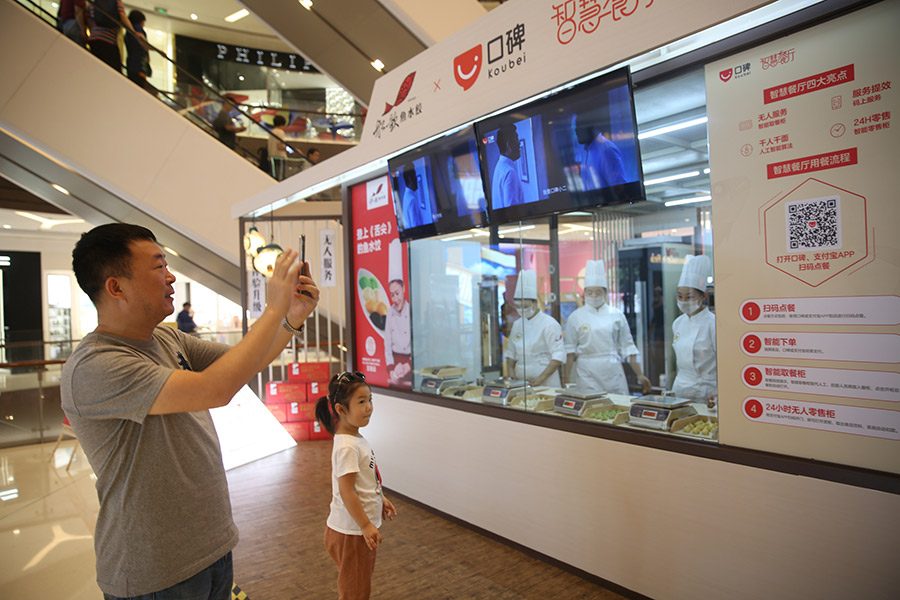Self-service dining taking off


Cashierless food and beverage establishments are springing up across China as more dining spaces embrace technologies to improve efficiency and trim costs.
In July, Singaporean bakery chain BreadTalk Group Ltd unveiled its first unmanned outlet in Shanghai. Customers scan a QR code to register their presence and authorize payment via Alibaba Group Holding Ltd's mobile wallet Alipay.
There are cameras and sensors to detect when customers open the fridge door and items such as bread, buns, yoghurt and juices are removed from shelves. Money is deducted automatically as shoppers complete the purchase and close the fridge door.
BreadTalk said in a statement the self-help facility allows customers to circumvent long queues. The company said it hopes to leverage the consumer data generated from such purchases to adjust inventory and recipes.
The store marks another step for foreign catering brands launching cashierless services in China. It follows United States fried chicken expert KFC introducing its smart store last year in Hangzhou, Zhejiang province, where electronic kiosks allow diners to order and pay "with a smile".
"The addition of the 24/7 self-service aspect is set to bring in a new revenue stream, and is likely to maximize average customer spending and sales per unit area," said Chen Sheng, vice-president of Alibaba affiliate Koubei, which provides technological support and analytics services for merchants.
The sector is attracting a growing army of data analytics players, such as Koubei, that are jumping on the smart catering bandwagon.
Beijing-based Keruyun Technology (Beijing) Co Ltd has developed a series of intelligent catering management devices to improve traditional restaurants' efficiency, including a self-service ordering desktop and smart cashier device.
Its systems are empowering and optimizing the operation of the likes of Spacelab, a restaurant featuring high-tech elements that has gained great popularity of late.
At Spacelab, customers can order food and pay through Keruyun's devices. Upon completion, the order will be quickly delivered to the kitchen via its display system. The chef will put the finished dish into a transmission orbit that conveys the food directly to customers. No waiter is required during the entire process.
While a 1,300-square-meter restaurant would typically require 80 to 100 service people, Spacelab only employs 40. Its turnover rate has also greatly improved, meaning that the restaurant can serve many more customers each day.
"The younger generations are comfortable serving themselves and are used to making their own choices. So we see great potential for self-service in-restaurant dining," said Lin Tingyang, founder of milk tea owner Heilongtang.




































